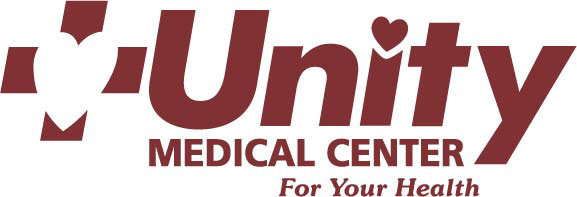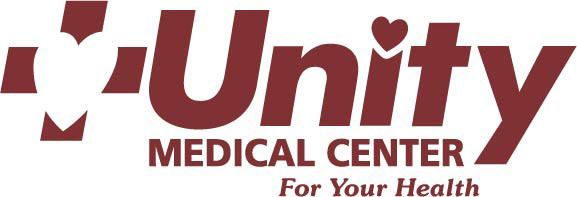MRI
What is MRI?
Magnetic Resonance Imaging (MRI) is a sophisticated and highly accurate imaging technique used to diagnose diseases of the brain, spine, skeleton, chest, abdomen, pelvis, and blood vessels. With a large magnet, radio waves, and a computer, MRI produces detailed cross-sectional pictures of your internal organs and structures without using ionizing radiation. During your exam, you will lie on a table and a "coil" will be placed under your body. This coil helps direct the magnetic energy to a specific body part. The table will move you into a tunnel-like opening. The amount of your body that is actually in the tunnel will depend upon the body part being examined. Very simply, the tunnel-like opening is surrounded by a magnet that helps to create images of your body. Your doctor will use those images to make an accurate diagnosis and plan your treatment as necessary. Additional information about what you can expect follows. If you have any additional questions about your MRI exam, please contact your physician or a member of our staff.
What can I expect?
An MRI exam generally takes between 30 minutes to an hour. The length of your exam will depend on the type of study your doctor has ordered. Due to different coils and the details required, only one body part is examined at a time. If your doctor orders more than one scan, an additional 30 minutes is usually needed for each area. The technologist will help you lie on your back on a cushioned scanning table. You will be given pillows or cushions for comfort. You may also be provided with ear plugs or headphones with music to help block out the noises. Once you are completely comfortable, the technologist will position a device, called a "coil" over or under you. The coil helps produce the clearest picture of the area it covers. When you are properly positioned, the table will slide into the opening of the machine and the exam will begin. It's important that you remain as still as possible throughout the exam. You won't feel a thing, but you will hear thumping or knocking sound for several minutes at a time. This is completely normal. If you become uncomfortable or have questions at any time, you'll be able to communicate with the technologist through a built-in intercom. When the exam is complete, the technologist will help you off the table and you'll collect your personal belongings.
Will I need an injection?
In some cases, your doctor may order a contrast agent to enhance the images. If a contrast agent is used, it will be injected into a vein in your arm. While the contrast agent used in MRI is very safe, it is important that you tell your doctor and the technologist performing the scan if you have been diagnosed with diabetes, kidney or liver disease, kidney failure, are on dialysis, or if you have had a kidney transplant. It is also important that you tell the technologist performing the exam if you are currently undergoing chemotherapy treatments (within last 2 weeks).
How do I prepare?
Metallic objects limit the accuracy of MRI, and the magnetic field can interfere with some surgically implanted devices. If any of the following apply to you, tell your doctor:
- Pregnancy
- Cardiac pacemaker or simulator
- Metallic implant
- Implanted insulin pump or infusion pump
- If you are a metal worker
- Inner ear implant
- Previous gunshot wound
- Joint or bone pins or replacements
- Permanent tattoos or eyeliner
- Aneurysm clips or brain surgery
Other than limiting the amount of fluids you drink on the day of the exam, you do not need to make any special preparations.
- Wear comfortable clothing without metal, if possible, especially near the area being scanned.
- Eat and take any prescription medications as usual, unless your doctor tells you otherwise.
- Bring a current list of all your medications to your appointment.
- Bring prior X-rays or scans if you are instructed.
- Leave items such as watches, credit cards, pocketknives, jewelry, hearing aids, or any other metallic items at home or give them to the technologist for safekeeping.
- Avoid wearing eye makeup if your head is being scanned (many eye shadows contain metallic flakes).
- If you'd like, ask a friend or relative to accompany you.
- Plan to arrive 20 minutes before your exam to provide medical and insurance information.
- If you are afraid of closed-in spaces, tell your doctor in advance. Your doctor can prescribe a sedative to help you relax. In that case, you will need someone to drive you home after the exam.
- If you feel you will be unable to remain still for 30 to 60 minutes due to pain, please inform your physician.
How do I get the results?
After your MRI scan, your images are sent to a physician who specializes in the review of these images.This physician will prepare a report that is shared with your doctor (the doctor that ordered the MRI exam). Your doctor will consider this information and is responsible for contacting you with the results. He or she can answer any questions you may have about your results at that time.
Post-procedure care
Following your MRI, you can resume your normal activities. (Please contact your doctor if you have any questions about your intended activities, or if you have any questions about restricted activities.) If you were given an injection of contrast media as part of your MRI today, you should:
- Drink an extra 24 ounces of water (three extra glasses).
- Contact your physician immediately if you experience any of the following:
- Trouble breathing
- Dizziness or lightheadedness
- Slow or irregular heartbeat
- Any other sudden change that concerns you
- Your injection of contrast media required a puncture through your skin. Even though proper steps were taken to prevent infection as a result of this skin puncture, an infection in this area is possible.
Please seek medical care if:
- The injection site becomes red, painful to the touch, or hot to the touch.
- A lump that was not present when you finished your scan develops at the injection site, or a small lump that was present becomes larger over time.
To schedule an MRI, please call Unity Medical Center at 701-352-1620



